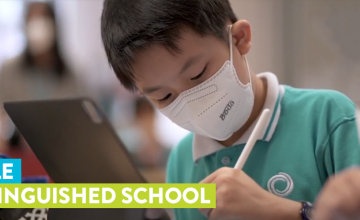How interaction develops your child

Mar 19, 2018
Why should children be exposed to play with others at such a young age? A child’s development is reliant on the relationships they have; with adults and other children; the environment that surrounds them and the experiences that they are exposed to. It is these factors that your child will learn from and create a foundation from which they will grow to become life-long and successful learners.
According to research, learning and development are at their highest rate in the preschool years. From birth to three, a child’s brain undergoes an amazing period of development producing more than a million neural connections each second. This is why early interaction, new experiences and a variety of opportunities is crucial in a child’s early years.
The foundation to learning in early years is acquiring the skills to interact appropriately with others, to control emotions and communicate effectively:
According to research, learning and development are at their highest rate in the preschool years. From birth to three, a child’s brain undergoes an amazing period of development producing more than a million neural connections each second. This is why early interaction, new experiences and a variety of opportunities is crucial in a child’s early years.
The foundation to learning in early years is acquiring the skills to interact appropriately with others, to control emotions and communicate effectively:
- Early interactions with other children gives them the to confidence to take part, try new things and to be persistent, creating a pathway to becoming a rigorous learner. This confidence will give them the ability to speak in familiar groups, to talk about their wants, needs, interests and ideas, thus working towards being an effective communicator. Watching others play and witnessing trial and error will support a child’s willingness to ‘have a go’, to be resilient and not give up at the first hurdle.
- Making positive relationships with other children at an early stage supports children to develop trust, empathy, compassion and a Principled sense of right and wrong. As a result, children start to play cooperatively with other children. Playing with others can help children to begin to manage their feelings and behaviour, this is when they learn vital skills such as turn-taking and sharing.
- Interaction with others in play situations teaches young children how to form friendships, communicate emotions and deal with challenges. Children become respectful to others and their feelings and they will be able to be adaptable to changes in different situations and routines.


